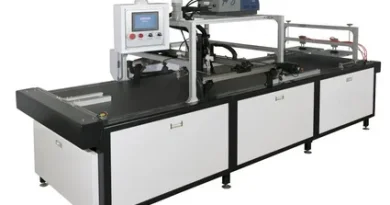What is Box Assembly Machinery? Streamlining Packaging with Advanced Automation
In the world of packaging, efficiency and reliability are paramount. Box assembly machinery is a cornerstone of modern manufacturing processes, designed to automate the assembly of various types of boxes quickly and accurately. This article explores the definition, functions, and significant advantages of box assembly machinery, as well as its indispensable role across different sectors.
Definition and Functionality of Box Assembly Machinery
Box assembly machinery refers to automated systems that construct boxes from flat sheets of cardboard or other materials. These machines fold, glue, and secure the sheets into finished boxes ready for product packaging. The process involves several steps — scoring, cutting, folding, and gluing — which are all automated to ensure speed and consistency. This type of machinery is crucial for businesses that require reliable, high-volume box production with minimal manual intervention.
Technological Features
Modern box assembly machines incorporate a range of sophisticated technologies designed to enhance production efficiency and adaptability:
- PLC Controls: Programmable Logic Controllers (PLC) are used to precisely control the machine operations, allowing for quick adjustments and streamlined production processes.
- Quick Changeover Capabilities: These machines are equipped with features that allow for rapid changes between different box sizes and styles, significantly reducing downtime.
- High-Speed Automation: Advanced machinery operates at high speeds, producing large quantities of boxes in a short amount of time, thus meeting high production demands efficiently.
Operational Benefits
Incorporating box assembly machinery into production lines offers numerous benefits:
- Increased Production Speed and Volume: Automated box assembly allows companies to meet large orders quickly, supporting high-demand scenarios effectively.
- Consistency and Quality Assurance: Automation reduces human error, ensuring that every box is assembled with consistent quality, which is crucial for protecting contents and satisfying customer expectations.
- Cost Efficiency: By automating the box assembly process, companies can reduce labor costs and minimize waste, resulting in significant savings.
Applications Across Industries
Box assembly machinery is versatile, finding applications in numerous industries:
- E-commerce: Online retailers rely on durable and reliable packaging solutions to ensure that goods are delivered in excellent condition.
- Electronics: Secure and precisely assembled boxes are necessary to protect sensitive electronic products from damage during transit.
- Pharmaceuticals: Packaging in the pharmaceutical industry must meet stringent standards, which can be reliably achieved with automated box assembly.
- Food and Beverage: Effective packaging protects food products from contamination and helps in maintaining freshness.
Future Trends
The future of box assembly machinery is likely to be shaped by advances in robotics, AI, and sustainability. The integration of robotic arms and AI can further enhance precision and speed while reducing operational costs. Moreover, there is a growing trend towards machines that are compatible with sustainable materials, reflecting the industry’s shift towards more environmentally friendly practices.
Conclusion
Box assembly machinery is essential in the packaging industry, offering significant improvements in efficiency, consistency, and cost-effectiveness. As technology advances, these machines will continue to evolve, meeting the needs of a diverse range of industries and playing a crucial role in the future of automated manufacturing.



